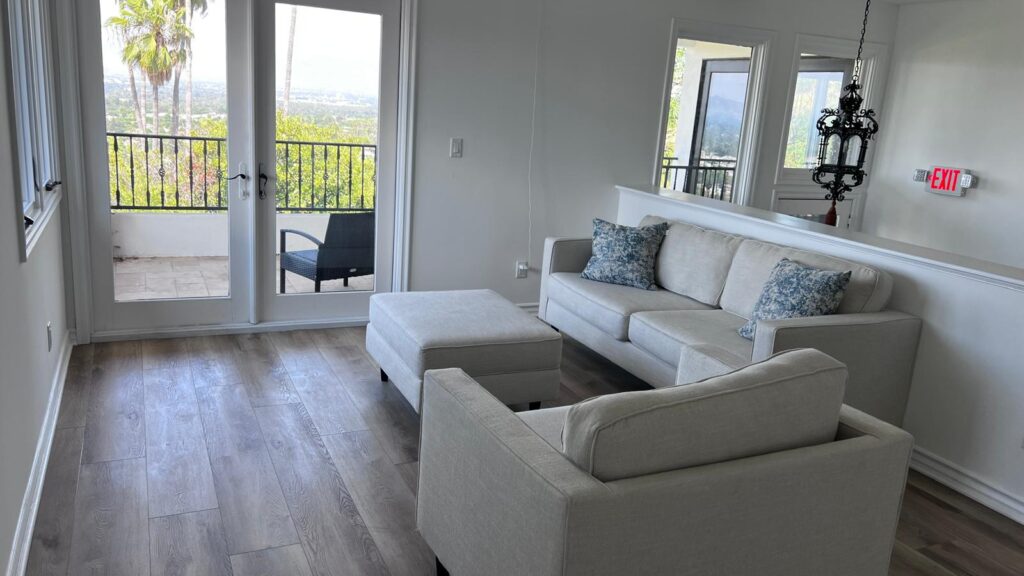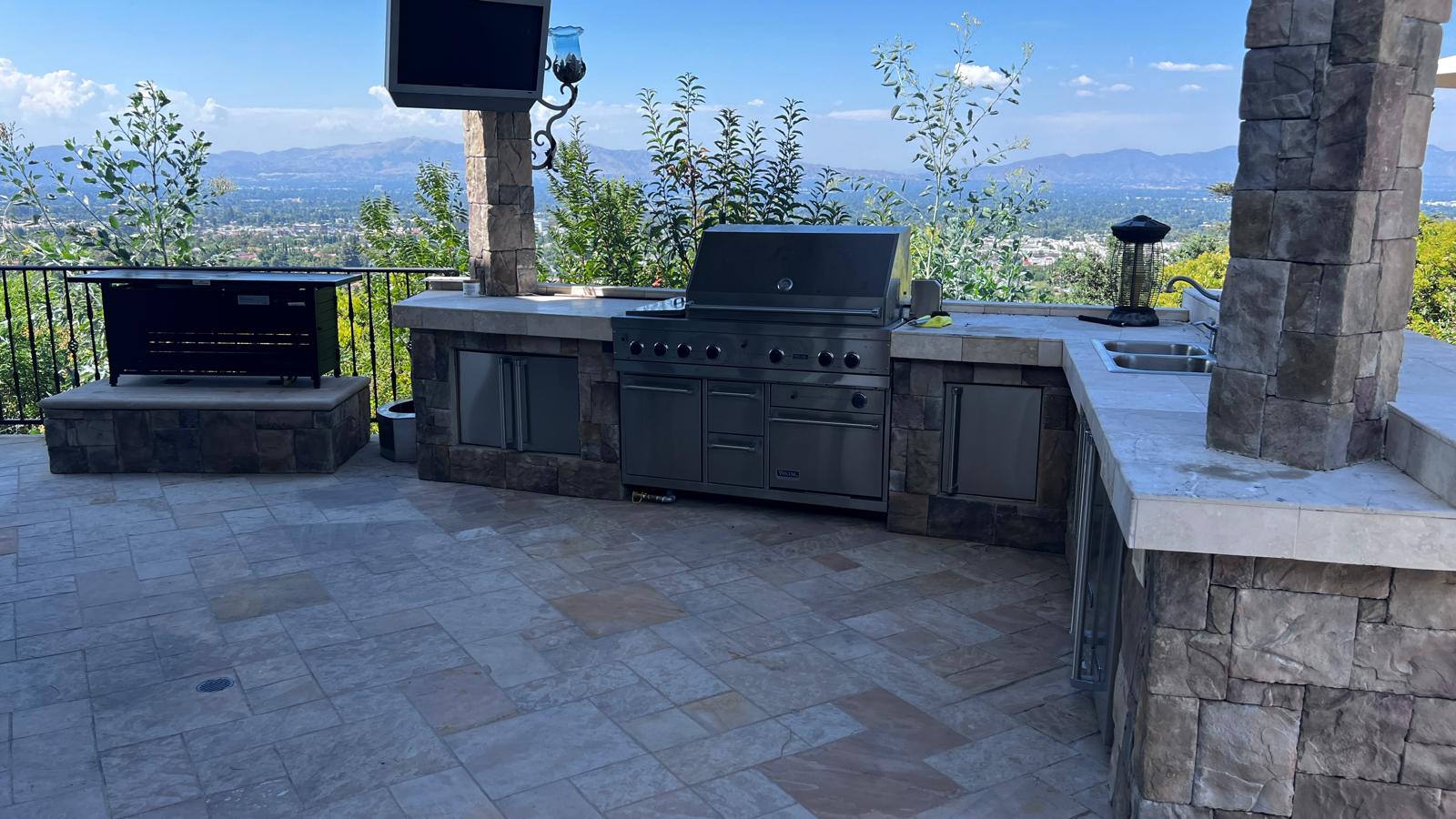When someone you love is struggling with addiction, finding the right detox center can feel overwhelming. After three decades of working in addiction medicine and mental health treatment, I've witnessed countless families navigate this challenging journey. The good news is that Encino, California, offers some of the most comprehensive and compassionate detox centers in the nation, providing the medical expertise and supportive environment necessary for successful recovery.
The path to recovery begins with detoxification—a critical first step that requires professional medical supervision to ensure both safety and comfort. In my years of practice, I've seen how the quality of detox treatment can significantly impact a person's entire recovery journey. This comprehensive guide will help you understand everything you need to know about detox centers Encino CA and how to choose the best facility for your specific needs.

Understanding Medical Detoxification: The Foundation of Recovery
Medical detoxification represents far more than simply stopping substance use. It's a carefully orchestrated medical process designed to safely manage withdrawal symptoms while preparing individuals for the next phase of their recovery journey. During my career, I've observed that many people underestimate the complexity and importance of this initial treatment phase.
Drug and alcohol rehab Encino CA facilities understand that detoxification affects every system in the body. When someone has been using substances regularly, their brain chemistry adapts to function with those substances present. Sudden cessation can trigger a cascade of physical and psychological symptoms that range from uncomfortable to potentially life-threatening.
The medical team at quality detox centers monitors vital signs, administers appropriate medications to ease withdrawal symptoms, and provides round-the-clock care. This level of supervision is particularly crucial for individuals withdrawing from alcohol, benzodiazepines, or opioids, where complications can be severe or even fatal without proper medical intervention.
The Difference Between Inpatient and Outpatient Detox Services
One of the most common questions I encounter involves choosing between inpatient detox Encino CA and outpatient alternatives. Both approaches have their place in addiction treatment, but the decision should be based on individual circumstances, substance use history, and medical considerations.
Inpatient detox Encino CA provides 24-hour medical supervision in a residential setting. This option is typically recommended for individuals who have been using substances heavily for extended periods, have experienced severe withdrawal symptoms previously, or have underlying medical conditions that could complicate the detox process. The controlled environment eliminates access to substances while ensuring immediate medical intervention if complications arise.
Outpatient detox programs allow individuals to receive medical supervision while maintaining some of their daily responsibilities. Outpatient detox programs Encino CA typically involve regular check-ins with medical staff, prescribed medications to manage withdrawal symptoms, and structured support groups. This approach works best for individuals with mild to moderate addiction, strong family support systems, and stable living environments.
Medical Supervision: The Gold Standard of Safe Detox
Medically supervised detox Encino CA represents the gold standard of addiction treatment. Having worked with thousands of patients over the years, I cannot overstate the importance of professional medical oversight during the withdrawal process. The human body's response to sudden substance cessation is unpredictable and can vary dramatically from person to person.
Medical supervision involves continuous monitoring of vital signs, including heart rate, blood pressure, temperature, and oxygen saturation. Healthcare providers assess neurological function, hydration status, and overall medical stability throughout the detox process. When complications arise—and they often do—immediate intervention can prevent serious health consequences.
The medical team at reputable facilities includes board-certified physicians specializing in addiction medicine, registered nurses trained in withdrawal management, and support staff experienced in crisis intervention. This multidisciplinary approach ensures comprehensive care that addresses both the physical and emotional aspects of detoxification.
Substances Treated at Professional Detox Centers
Modern addiction treatment Encino CA facilities are equipped to handle withdrawal from virtually any substance. Each substance category presents unique challenges and requires specific medical protocols to ensure patient safety and comfort.
Alcohol detox Encino CA services address one of the most medically complex withdrawal syndromes. Alcohol withdrawal can progress through several stages, from mild tremors and anxiety to potentially fatal seizures and delirium tremens. Medical professionals use evidence-based protocols, often including benzodiazepine medications, to prevent serious complications while gradually stabilizing brain chemistry.
Opioid detox Encino CA programs have become increasingly sophisticated as the opioid crisis has evolved. Whether someone is withdrawing from prescription painkillers, heroin, or synthetic opioids like fentanyl detox Encino CA requires specialized knowledge, the medical approach focuses on managing symptoms while preventing relapse. Medications like buprenorphine, methadone, or naltrexone may be used as part of medication-assisted treatment protocols.
Drug detox Encino CA services extend beyond opioids and alcohol to include stimulants, sedatives, hallucinogens, and synthetic drugs. Each substance category requires tailored treatment approaches. For instance, cocaine addiction treatment Encino CA focuses on managing depression, fatigue, and intense cravings that characterize stimulant withdrawal, while benzodiazepine withdrawal requires careful, gradual tapering to prevent seizures.
The Luxury Detox Experience: Comfort Meets Clinical Excellence
Luxury detox centers Los Angeles area, including Encino, have redefined what medical detox can look like. Having visited and consulted for numerous high-end facilities, I've seen how luxury amenities can actually enhance treatment outcomes when combined with excellent clinical care.
These facilities typically offer private rooms, gourmet meals prepared by professional chefs, spa services, fitness facilities, and serene environments conducive to healing. However, the true value of luxury detox centers lies not in the amenities but in their ability to provide personalized, concierge-level medical care with higher staff-to-patient ratios.
The luxury model often allows for more individualized treatment plans, longer sessions with medical providers, and access to cutting-edge treatment modalities. Patients receive the same evidence-based medical care as standard facilities but with enhanced comfort and privacy that can reduce treatment-related stress and anxiety.
Dual Diagnosis: Treating Co-Occurring Mental Health Conditions
Dual diagnosis treatment Encino CA addresses one of the most challenging aspects of addiction recovery. Research consistently shows that approximately 60% of individuals with substance use disorders also have underlying mental health conditions such as depression, anxiety, bipolar disorder, or post-traumatic stress disorder.
Mental health and addiction Encino CA treatment requires specialized expertise because these conditions often exacerbate each other. For example, someone might use alcohol to self-medicate anxiety symptoms, but chronic alcohol use actually worsens anxiety over time. Without addressing both conditions simultaneously, long-term recovery becomes significantly more difficult.
During my career, I've seen countless individuals struggle with repeated relapses because their underlying mental health conditions went untreated. Quality dual diagnosis programs employ psychiatrists, psychologists, and licensed therapists trained in both addiction medicine and mental health treatment. They use comprehensive assessment tools to identify co-occurring conditions and develop integrated treatment plans that address all aspects of a person's health.
Holistic Approaches to Detoxification
Holistic detox Encino CA programs recognize that addiction affects the whole person—body, mind, and spirit. While medical stabilization remains the primary focus of detoxification, many facilities now incorporate complementary therapies that support healing on multiple levels.
These programs might include yoga and meditation to help manage stress and anxiety, acupuncture to reduce withdrawal symptoms and cravings, massage therapy to address physical tension and promote relaxation, nutritional counseling to restore physical health, and art or music therapy to provide emotional expression and processing opportunities.
I've observed that patients who engage with holistic modalities during detox often report feeling more empowered in their recovery process. These approaches teach valuable coping skills that patients can use long after completing formal treatment.
The Role of Family and Support Systems
Substance abuse treatment Encino CA programs increasingly recognize the crucial role that families and support systems play in recovery success. Addiction affects entire family systems, often creating patterns of dysfunction, codependency, and trauma that must be addressed for lasting recovery.
Many detox centers now offer family education programs, support groups for loved ones, and family therapy sessions. These interventions help families understand addiction as a medical condition, learn healthy communication patterns, and develop skills to support their loved one's recovery without enabling continued substance use.
During detox, family involvement might be limited to protect patient privacy and allow for medical stabilization. However, as patients progress through treatment, family participation becomes increasingly important for building the support network necessary for long-term success.
Insurance Coverage and Financial Considerations
Insurance for detox Encino CA varies significantly depending on individual insurance plans, but the Affordable Care Act has made addiction treatment more accessible by requiring insurance companies to cover substance abuse treatment at the same level as other medical conditions.
Most major insurance plans, including those from Blue Cross Blue Shield, Aetna, Cigna, United Healthcare, and Kaiser Permanente, provide coverage for medically necessary detox treatment. However, coverage levels, prior authorization requirements, and approved facilities can vary.
For individuals without insurance coverage, many facilities offer payment plans, sliding fee scales based on income, or connections to state-funded treatment programs. Some facilities also accept financing through healthcare credit companies or offer scholarship programs for qualifying individuals.
What to Expect During the Detox Process
The detox timeline varies significantly depending on the substances used, duration of use, individual metabolism, overall health, and other factors. However, most residential treatment Encino CA programs follow a general progression that patients and families should understand.
The first 24-48 hours typically involve medical assessment, stabilization, and the onset of withdrawal symptoms. Medical staff monitor vital signs closely and may administer medications to prevent serious complications. Patients often experience anxiety, physical discomfort, and psychological distress during this phase.
Days 3-7 usually represent the peak of physical withdrawal symptoms for most substances. Medical support intensifies during this period, with frequent monitoring and symptom management. Patients may participate in basic group activities or individual therapy sessions as their condition allows.
Week 2 and beyond focus on preparation for ongoing treatment. Physical withdrawal symptoms typically subside, allowing for increased participation in therapy, educational sessions, and discharge planning. This phase emphasizes building motivation for continued treatment and developing relapse prevention skills.
Choosing the Right Detox Center
Selecting appropriate rehab facilities in Encino CA requires careful consideration of multiple factors. Location matters, as proximity to family support can be beneficial, though some individuals benefit from treatment away from their usual environment and potential triggers.
Accreditation from organizations like The Joint Commission or CARF indicates that a facility meets established quality standards. Staff credentials are crucial—look for board-certified physicians, licensed nurses, and credentialed therapists with specialized addiction training.
Treatment philosophy should align with personal beliefs and preferences. Some facilities emphasize medical intervention, while others incorporate spiritual or holistic elements. The availability of specialized programs for specific populations (adolescents, professionals, LGBTQ+ individuals) may be important depending on individual needs.

Grand View Villas Recovery: Excellence in Addiction Treatment
Grand View Villas Recovery exemplifies the highest standards of addiction treatment in the Encino area. This premier facility combines clinical excellence with personalized care, offering comprehensive addiction recovery services Encino CA that address every aspect of the recovery journey.
The center's residential treatment program provides a structured, supportive environment where individuals can focus entirely on their recovery. The facility's approach recognizes that successful treatment extends far beyond detoxification to include comprehensive behavioral health interventions, family support, and long-term recovery planning.
Their specialized detox program utilizes the latest evidence-based protocols while maintaining the personalized attention that distinguishes exceptional care. The medical team includes board-certified addiction specialists, psychiatric professionals, and experienced nursing staff trained in managing complex withdrawal syndromes.
For individuals seeking detox services specifically in Encino, Grand View Villas Recovery offers the perfect combination of accessibility and excellence. Their location provides the privacy and tranquility necessary for healing while remaining accessible to families and support systems.
Preparing for Detox Treatment
Preparation can significantly impact the detox experience and overall treatment success. Medical preparation involves gathering complete medication lists, medical records, and information about substance use patterns. Honesty about substance use is crucial for safety—medical staff need accurate information to provide appropriate care.
Practical preparation includes arranging time off work, organizing childcare or pet care, and managing financial responsibilities. Many people find it helpful to pack comfortable clothing, personal comfort items, and a journal for reflection.
Emotional preparation might involve saying goodbye to substances, which can be surprisingly difficult. Some individuals benefit from writing letters to themselves about their motivation for recovery or creating lists of goals for their sober future.
The Transition from Detox to Ongoing Treatment
Detoxification represents only the beginning of recovery, not the end. The transition from detox to ongoing treatment is crucial for long-term success. During my years in practice, I've seen many individuals complete detox successfully only to relapse because they didn't continue with comprehensive treatment.
Most experts recommend that individuals transition directly from detox to either inpatient rehabilitation, intensive outpatient programs, or other structured treatment modalities. This continuity prevents the treatment gap that often leads to relapse.
Encino CA drug rehab centers typically offer multiple levels of care, allowing for seamless transitions as individuals progress in their recovery. This continuum of care model recognizes that recovery is a process requiring different levels of support at different stages.
Success Factors and Long-Term Outcomes
Research consistently demonstrates that individuals who complete professional detox programs have significantly better long-term outcomes than those who attempt to quit substances on their own. However, success depends on multiple factors beyond the quality of detox treatment.
Continued engagement with treatment after detox is perhaps the most significant predictor of long-term recovery. Individuals who transition to ongoing therapy, participate in support groups, and maintain connection with treatment providers have much higher success rates.
Family support, stable housing, meaningful employment or education, and healthy social connections all contribute to recovery success. Many successful individuals also develop new hobbies, interests, and social activities that provide fulfillment without substances.
Frequently Asked Questions About Detox Centers
What is a detox center, and how is it different from a rehab center?
A detox center specializes in the medical management of withdrawal symptoms during the first phase of recovery. The primary focus is on safely removing substances from the body while managing physical and psychological withdrawal symptoms. Detox typically lasts 3-10 days depending on the substances involved.
Rehab centers, by contrast, focus on the behavioral and psychological aspects of addiction recovery. They provide therapy, counseling, education, and skills development to help individuals maintain sobriety long-term. Rehab programs can last 30, 60, 90 days, or longer.
Many comprehensive facilities offer both detox and rehab services, allowing for seamless transitions between treatment phases. Some individuals may need to complete detox at a medical facility before transferring to a rehabilitation program.
How do I know if I or a loved one needs a medical detox program?
Several factors indicate the need for medical detox rather than attempting to quit independently. If someone has been using substances daily for extended periods, medical supervision is strongly recommended. Previous experiences of severe withdrawal symptoms, including seizures, delirium, or dangerous blood pressure changes, require medical management.
Individuals with underlying medical conditions, such as heart disease, diabetes, or mental health disorders, should always detox under medical supervision. The presence of multiple substances in someone's system also increases the complexity and risk of withdrawal.
If there's any uncertainty about safety, it's always better to err on the side of caution and seek professional evaluation. Medical professionals can assess individual risk factors and recommend appropriate treatment levels.
What specific substances can be treated at a detox center?
Modern detox centers can safely manage withdrawal from virtually any substance. This includes alcohol, which can produce potentially fatal withdrawal complications; opioids like heroin, prescription painkillers, and synthetic opioids like fentanyl; stimulants including cocaine, methamphetamine, and prescription stimulants; sedatives and tranquilizers like benzodiazepines and barbiturates; and synthetic drugs like K2, Spice, and designer stimulants.
Each substance category requires specific medical protocols and monitoring procedures. Some substances, like benzodiazepines, require gradual tapering to prevent seizures, while others, like cocaine, require supportive care focused on managing psychological symptoms.
Many individuals use multiple substances, which can complicate the detox process and require specialized treatment approaches. Professional detox centers have the expertise to manage these complex cases safely.
What happens during a medically supervised detox program?
Medical detox begins with comprehensive assessment including medical history, physical examination, laboratory tests, and substance use evaluation. The medical team develops an individualized treatment plan based on the substances used, withdrawal risk factors, and overall health status.
Continuous monitoring includes vital sign checks, neurological assessments, and psychological evaluations. Medical staff administer medications as needed to prevent complications and manage symptoms. These might include anti-seizure medications, blood pressure medications, anti-nausea drugs, or medications specifically designed for addiction treatment.
Patients also receive nutritional support, hydration management, and basic therapy services. The medical team regularly assesses progress and adjusts treatment plans as needed. Discharge planning begins early to ensure smooth transitions to ongoing treatment.
How long does the detox process typically take?
Detox duration varies significantly based on individual factors, but general timeframes exist for different substances. Alcohol detox typically takes 3-7 days, with the most severe symptoms occurring within the first 72 hours. Opioid detox usually lasts 5-10 days, depending on the specific opioid and usage patterns.
Benzodiazepine detox can take several weeks or even months because these medications must be tapered gradually to prevent seizures. Stimulant detox is often shorter physically but may require longer psychological support.
Individual factors that influence duration include the specific substances used, duration and intensity of use, overall physical health, age, and previous detox experiences. Some individuals may need extended medical stabilization, while others progress more quickly.
Are detox centers in Encino, CA, equipped to handle severe withdrawal symptoms?
Quality detox centers in Encino are well-equipped to manage even the most severe withdrawal complications. They maintain appropriate medical staff ratios, emergency medications, and protocols for managing life-threatening complications like seizures, delirium tremens, or cardiovascular emergencies.
Facilities typically have relationships with local hospitals for emergency transfers if needed, though most complications can be managed on-site. Staff receive specialized training in withdrawal management and emergency response procedures.
The key is choosing an accredited facility with board-certified medical staff and proper licensing. These facilities undergo regular inspections and must meet strict safety standards to maintain their credentials.
What is a "dual diagnosis," and do detox centers in Encino, CA, offer this kind of treatment?
Dual diagnosis refers to the simultaneous presence of substance use disorders and mental health conditions like depression, anxiety, bipolar disorder, or PTSD. This combination is extremely common, affecting approximately 60% of individuals seeking addiction treatment.
Many detox centers in Encino offer dual diagnosis services, recognizing that both conditions must be treated simultaneously for optimal outcomes. This requires psychiatric evaluation, appropriate medication management, and specialized therapy approaches.
Dual diagnosis treatment is complex because substances often mask or worsen mental health symptoms, making accurate diagnosis challenging during early recovery. Experienced facilities have psychiatrists and psychologists trained in both addiction and mental health treatment.
What should I look for when choosing the best detox center for me?
Key factors include proper licensing and accreditation from recognized organizations, qualified medical staff including board-certified physicians and licensed nurses, appropriate level of care for your specific needs, availability of dual diagnosis treatment if needed, and insurance acceptance or reasonable payment options.
Consider the facility's philosophy and approach to treatment, location relative to family support, amenities and comfort level, success rates and patient testimonials, and discharge planning and connection to ongoing treatment.
Visit the facility if possible, ask detailed questions about their protocols, and trust your instincts about whether the environment feels supportive and professional.
Are detox centers covered by insurance, and what insurance plans do they accept?
Most major insurance plans provide coverage for medically necessary detox treatment. This includes plans from Blue Cross Blue Shield, Aetna, Cigna, United Healthcare, Kaiser Permanente, and many others. However, coverage levels and requirements vary significantly between plans.
Some insurance companies require prior authorization before treatment begins. Others have specific networks of approved providers. It's essential to verify coverage details before starting treatment, including copays, deductibles, and any limitations on treatment duration.
Many facilities have insurance specialists who can verify coverage and help navigate insurance requirements. They can also explain what costs might not be covered and available payment options.
What is the typical cost of detox treatment in Encino, CA, for those without insurance?
Costs vary significantly depending on the level of care, facility amenities, treatment duration, and specific services required. Basic medical detox might cost $1,500-$3,000 for a typical 5-7 day stay, while luxury facilities can cost $10,000-$20,000 or more.
Many facilities offer payment plans, sliding fee scales based on income, or financing options through healthcare credit companies. Some also provide scholarship programs for qualifying individuals.
Consider the cost of ongoing medical complications or repeated treatment attempts when evaluating detox costs. Professional detox, while expensive upfront, often prevents more costly emergency interventions and improves long-term success rates.
Do I need a doctor's referral to be admitted to a detox center?
Most detox centers accept patients without physician referrals, though some insurance plans may require referrals for coverage. Many facilities offer 24-hour admission services and can conduct initial assessments to determine treatment needs.
However, having medical records and communication with existing healthcare providers can be helpful for treatment planning. If you have underlying medical conditions or take prescription medications, coordination with your doctor is important.
Some individuals prefer to discuss treatment options with their primary care physician first, especially if they have complex medical needs or take multiple medications that might interact with detox protocols.
What kind of staff works at a detox center?
Professional detox centers employ multidisciplinary teams including board-certified physicians specializing in addiction medicine or internal medicine, registered nurses with specialized training in withdrawal management, licensed mental health counselors and therapists, psychiatric professionals for dual diagnosis treatment, and certified addiction counselors.
Support staff might include case managers, nutritionists, activity therapists, and administrative personnel. The staff-to-patient ratio is typically higher than general medical facilities due to the intensive monitoring required during detox.
Look for facilities that provide information about their staff qualifications and are transparent about their credentials and experience levels.
Is inpatient or outpatient detox better for my situation?
The decision depends on several factors including substance use severity, previous withdrawal experiences, medical conditions, mental health status, and social support systems. Inpatient detox is recommended for individuals with severe addiction, history of dangerous withdrawal symptoms, underlying medical conditions, limited family support, or unsafe home environments.
Outpatient detox may be appropriate for individuals with mild to moderate addiction, strong family support, stable housing, no history of severe withdrawal, and ability to abstain from substance use during treatment.
Medical professionals can assess individual risk factors and recommend appropriate treatment levels. When in doubt, it's safer to choose a higher level of care that can be stepped down if appropriate.
Will I receive any therapy or counseling during the detox phase?
Most detox programs include some level of counseling or therapy, though the intensity is typically lower than in rehabilitation programs. Early therapy focuses on motivation building, crisis intervention, and preparation for ongoing treatment rather than intensive behavioral change work.
Services might include individual counseling sessions, group therapy focused on education and support, family counseling or communication, and discharge planning sessions. The specific services depend on the facility and the patient's medical stability.
Some individuals are too physically uncomfortable during early detox to participate fully in therapy. As symptoms improve, therapeutic engagement typically increases.
What happens after I complete a detox program?
Successful detox completion should lead directly to ongoing treatment rather than a return to normal activities. Options include residential rehabilitation programs, intensive outpatient programs, outpatient counseling and therapy, medication-assisted treatment, and peer support groups.
The specific recommendations depend on addiction severity, individual circumstances, and treatment goals. Many facilities provide discharge planning services to help arrange ongoing care and ensure smooth transitions.
Without ongoing treatment, relapse rates are extremely high. Detox addresses only the physical dependence on substances; comprehensive recovery requires behavioral change, skill development, and ongoing support.
How can I help a family member who is hesitant to go to a detox center?
Approach the conversation with compassion rather than confrontation. Express concern about their health and safety rather than focusing on their behavior or choices. Provide specific examples of how substance use is affecting their life and relationships.
Offer to help with practical arrangements like researching facilities, handling insurance verification, or providing transportation. Sometimes people are overwhelmed by the logistics and need concrete support.
Consider involving a professional interventionist if direct approaches aren't successful. Many facilities also offer family consultation services to help plan effective approaches to treatment engagement.
Are there holistic or alternative therapies available in detox programs?
Many modern detox centers incorporate complementary therapies alongside traditional medical treatment. These might include yoga and meditation for stress management, acupuncture for symptom relief, massage therapy for physical comfort, nutritional counseling and supplements, and art or music therapy for emotional expression.
These approaches support the detox process but don't replace medical management. The primary focus remains on safety and medical stabilization, with holistic therapies providing additional comfort and support.
Not all facilities offer these services, so ask specifically about available complementary therapies if they're important to you.
What is the difference between a luxury detox center and a standard one?
Luxury detox centers typically offer enhanced amenities like private rooms, gourmet meals, spa services, fitness facilities, and more comfortable surroundings. However, the most important differences are often in staffing ratios, individualized attention, and personalized treatment approaches.
Luxury facilities may provide concierge-level service, more time with medical providers, cutting-edge treatment modalities, and enhanced privacy protections. They often cater to professionals who need to maintain some work responsibilities during treatment.
The clinical care should meet the same high standards regardless of amenity level. Focus on medical credentials, treatment outcomes, and safety protocols rather than just amenities when choosing a facility.
How do detox centers ensure patient privacy and confidentiality?
Detox centers must comply with HIPAA regulations, which provide strict protections for medical information. This means treatment information cannot be shared without written patient consent, even with family members.
Facilities typically have policies about visitor access, telephone use, and communication with outside parties. Many also offer enhanced privacy options for individuals in public positions or those concerned about stigma.
Patients should understand their privacy rights and any limitations during treatment. Some facilities offer specialized programs for professionals or public figures who require additional confidentiality protections.
What is the success rate for a person who completes a detox program?
Success rates vary significantly depending on how success is measured and what happens after detox completion. Detox completion rates are generally high, with most individuals successfully completing the medical stabilization process.
However, detox alone has limited impact on long-term recovery. Individuals who complete detox and transition directly to ongoing treatment have much better outcomes than those who return home without additional support.
Long-term recovery success depends on multiple factors including continued treatment engagement, family support, mental health treatment, lifestyle changes, and ongoing recovery support. Quality detox programs focus on connecting patients to appropriate continuing care to maximize long-term success.





